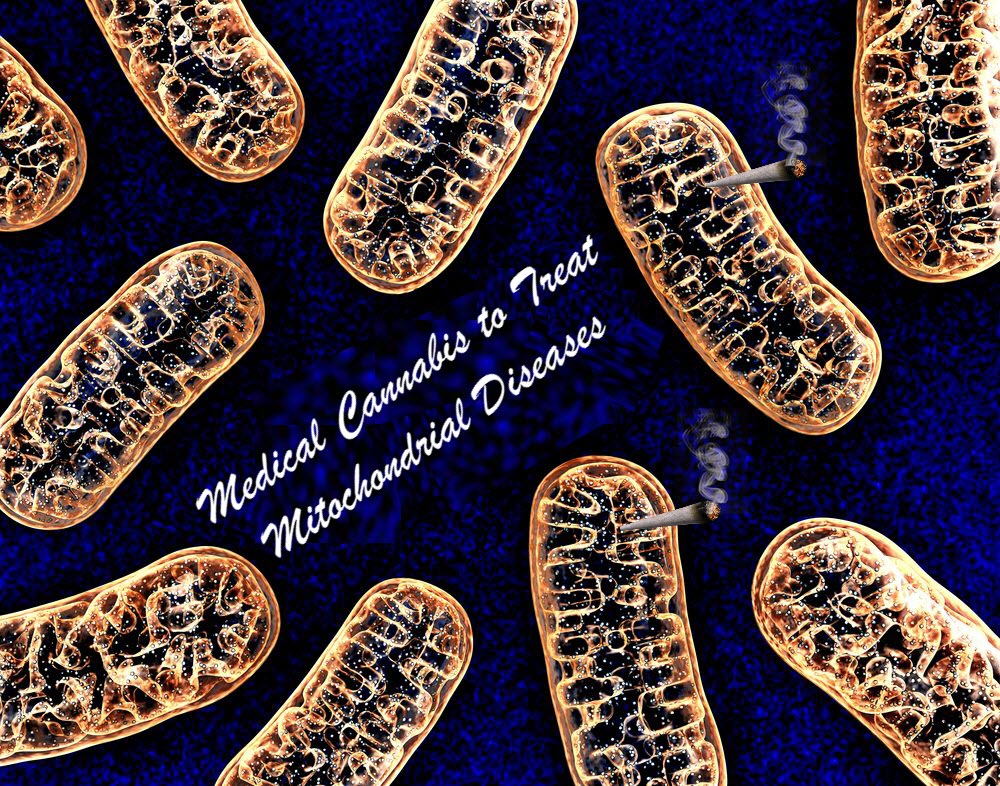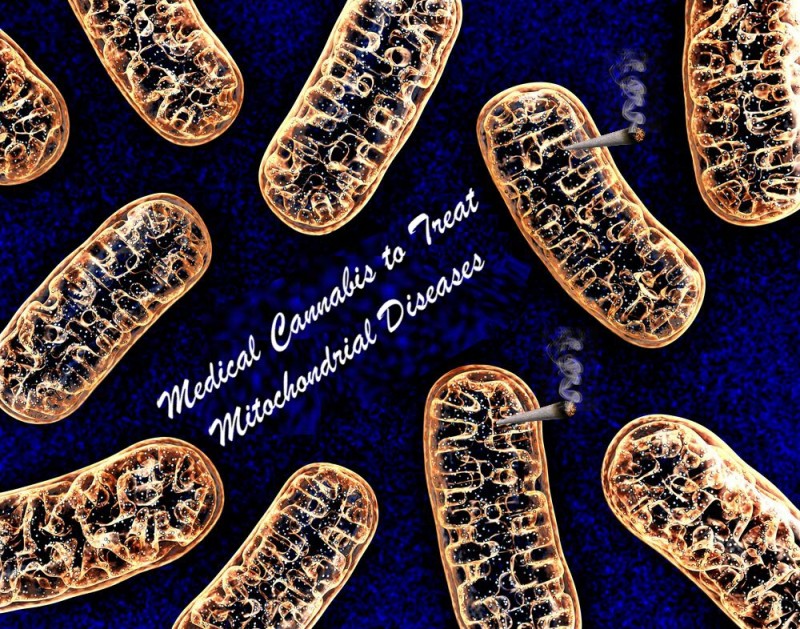Medical Cannabis to Treat Mitochondrial Diseases

Like with so many other factors in our bodies, Mitochondrial disease is something that affects each person differently. This is another complicated disease that could vary from being fatal to having minor implications on the individual. To deepen the plot, mitochondrial diseases could be the starting point of many other debilitating diseases. This disease is a very up and down experience, but the good news is that medical marijuana can help.
What are Mitochondrial Diseases?
To understand what mitochondrial diseases are, we need to understand the function of the mitochondria. The mitochondria are the energy-producing factory of our body. Each cell has several thousand mitochondria that are responsible for the processing of oxygen and converting from substances of food into energy. Ninety percent of the body’s energy is produced by the mitochondria. When the mitochondria fail to produce enough energy for the body to function properly, mitochondrial disease, often genetically hereditary, start to happen.
The primary function of mitochondria is to convert high-energy molecules, like sugars and amino acids into energy for the body to use. Apart from the energy-producing function, the mitochondria also help with other processes. It is involved in cholesterol metabolism and regulates the rate of hemoglobin production. It also detoxifies ammonia in the liver and synthesizes estrogen and testosterone. So, as one can see, the mitochondria play a significant role in the human body.
When the mitochondria do not function properly anymore, the cells in the body can only supply limited amounts of energy and are unable to make RNA and DNA that are crucial for their growth and function. Cells affected by mitochondrial failure seize to exist. Entire systems in the body start failing. Some of these vital systems include the respiratory, endocrine, and cardiovascular systems. The most severe mitochondrial diseases are those affecting the brain, muscles, or nerve tissue. These types of cells rely heavily on mitochondrial functioning to provide high amounts of energy it needs. What complicates the matter is the disease can look vastly different from patient to patient depending on where it strikes.
What is the origin of Mitochondrial Diseases?
The first cause of mitochondrial disease is often found in a genetic condition where it is passed over from parent to child in several ways. The genes in our body are responsible for the specific traits we have. Normally, a child inherits genes in pairs – one gene comes from the mother and another gene from the father. But when a person does not receive a normal set of genes from the parents, a mutation occurred, and the gene is defective.
Mitochondrial diseases are also more prominent under children, but it can happen later in life too. Sometimes, external issues, like infections, environmental toxins, some medicines, unhealthy lifestyles, and drug use also cause mitochondrial diseases.
The Different Inheritance Types of Mitochondrial Diseases
Autosomal recessive inheritance – a child receives one mutated copy of a gene from each parent. There is a 25% chance of a mitochondrial disease
Autosomal dominant inheritance – a child receives one mutated copy from either one of the parents. The child has a 50% chance of a mitochondrial disease
Mitochondrial inheritance – The mitochondria contain their own DNA. When this happens there is a mutation in the mitochondrial DNA. This disease comes exclusively from the mother and there is a 100% chance that the child will inherit it
Random mutations – sometimes a gene develops its own mutation and is not inherited from the parents
The Symptoms of Mitochondrial Diseases
The symptoms depend on which cells of the body are affected. The symptoms also differ from person to person. Even people in the same family with the same mitochondrial disease could have different symptoms. For some, mitochondrial failure only appears in specific tissues, organs, or types of cells. For others, multiple body systems are involved. Some common symptoms include:
Severe developmental delays and poor growth
Visual and hearing problems
Loss of motor control
Speech problems
Muscle pain or weakness
Open to infection
Digestion problems and constipation
Respiratory problems
Hypoglycemia
Seizures, strokes, dementia
Neurological problems and autism
Using Medical Marijuana to Treat Mitochondrial Diseases
Medical marijuana shows a lot of potential to treat mitochondrial diseases. It is loaded with antioxidants and some of the cannabinoids have the ability to regulate mitochondrial activity. The cannabinoids help to balance the oxidative stress that is a natural byproduct of mitochondrial function. In the process of converting energy, oxidative stress is a natural occurrence. When this oxidative stress is too high, the body releases damaging free radicals that interact with cell membranes, proteins, DNA, and other organelles. The antioxidants in cannabis protect against the damage caused by the oxidative stress by neutralizing free radicals.
When the natural regeneration process in the body does not work properly, and imbalance leads to numerous diseases and disorders. Medical cannabis helps to maintain the balance of apoptosis and autophagy in many different ways. THC in smaller doses increases the mitochondrial activity and this helps with cell regeneration.
In a nutshell, medical cannabis with its wide array of functions has one thing in mind. It strives to bring homeostasis. When the mitochondria are not functioning sufficiently, cannabis can help to restore the balance.
CANNABIS AND CELLULAR MEDICINE, READ MORE...
CANNABIS STRAINS TO FIGHT OF THE CORONAVIRUS, CLICK HERE!








